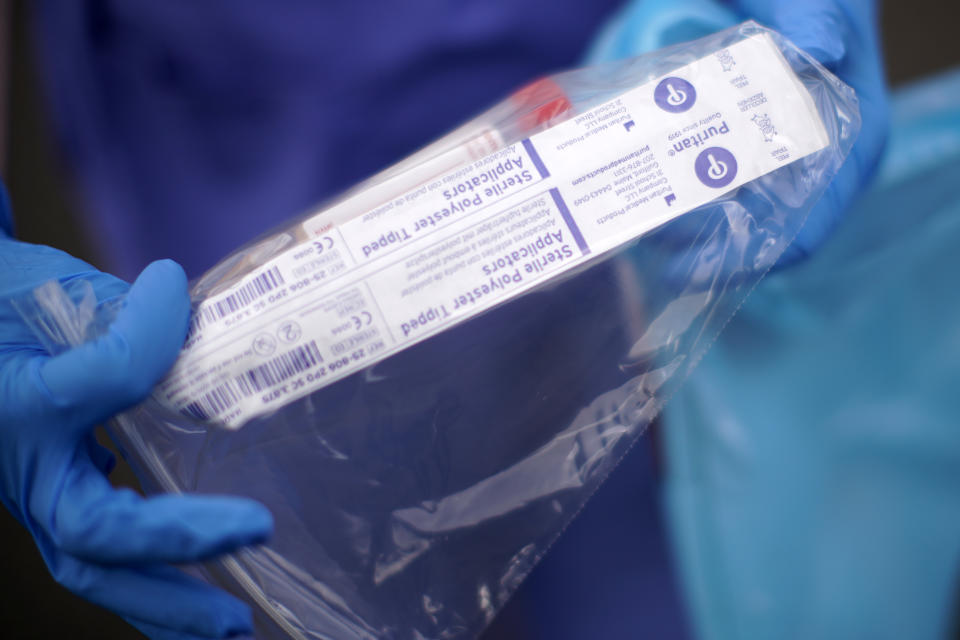How to get a coronavirus test if you have symptoms
Everyone aged five and over in the UK with coronavirus symptoms can now be tested for the disease, Matt Hancock announced on Monday.
The health secretary was speaking in Parliament after the loss of taste or smell was added to the list of COVID-19 symptoms, alongside a fever and a new persistent cough.
Testing in England had been limited to key workers, hospital patients, care home residents and the over-65s with symptoms, along with their families or people they live with.
Making tests available to anyone over five with symptoms is a major expansion of the UK's testing programme.

How can I get tested?
If you think you need a coronavirus test you can arrange to visit a regional test drive-through site.
You can ask for a home test kit – although these have been in short supply.
The test is performed by a taking a swab from the nose or the back of the throat.
If you are self-isolating because you or member(s) of your household have coronavirus symptoms, the employer referral portal allows employers to refer essential workers for testing.
However, only symptomatic people in the household can be tested.
But if the employee works in social care, they can be tested whether symptomatic or asymptomatic.

If referred through this portal, essential workers will receive a text message with a unique invitation code to book a test for themselves.
Other than drive-through centres and home kits there are:
Mobile testing units: Mobile testing units move around the UK, responding to need travelling to test essential workers at sites including care homes, police stations and prisons.
Satellite centres: NHS capability is being increased by providing test kits directly to ‘satellite’ centres at places like hospitals that have a particularly urgent or significant need.
NHS facilities: Testing in NHS facilities such as hospitals is available for patients and some NHS workers.
A courier would then pick up the sample and take it to a laboratory to be analysed.
The government said it aims to return test results within 48 hours of a swab being taken, or within 72 hours for a home test.
Why is it important to get tested?
People are tested both for individual diagnosis and to understand how widely the virus has spread.
Tests may also show if people need to continue self-isolating, as they may have already had and recovered from the virus, in which case they could go back to work.
Tests help people to know whether they are safe to go to work. For example, if you come into contact with large numbers of people or vulnerable people on a daily basis.
Wide testing can also let the health service plan for extra demand, and inform government decisions around social distancing and lockdowns.
For the government's full advice, visit https://www.gov.uk/guidance/coronavirus-covid-19-getting-tested#how-to-arrange-a-test.

 Yahoo Finance
Yahoo Finance 
